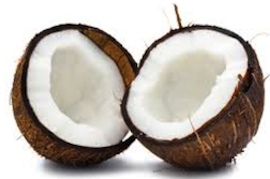You want to be more than just a pretty face…..you want to be
a healthy mind and body!
We, black & brown folks, are at the head of so many
lists. The smartest, hardest working, most beautiful
souls but, (black men) with highest increasing rate
of colorectal cancer between ages 29 – 45 (!) of all
racial groups.
What has led to this? There are many contributing
causes.Heredity plays a part for 50% of all cases.
We can’t control that. Researchers think that diet plays an important part. We can control that. See how many check marks
you score on this list of colorectal cancer favorite foods:
- Sodas & sugary beverages
- Red meat
- Sandwich meats/processed meats
- High fat intake
- White bread
- Alcohol
- Sugar
- Fast foods
Other conditions that are associated with increased risk
of colon or rectal cancer are obesity, lack of exercise &
smoking. Having a family history of colon cancer may
make you especially vulnerable even with a normal diet.
That’s why getting checked is essential if there is someone
in your lineage who has had colon or rectal cancer.

The world was stunned when actor, Chadwick Boseman,
left the world at only 43 years old. He died from colon cancer.
His death has brought visibility to the fact that people are
getting this type of cancer earlier and earlier in life.
There are many ways to screen for this cancer, both with
tests that you can take at home and colonoscopies
performed on an outpatient basis under anesthesia.
The earlier it’s found, the easier it is to treat. In younger
people, it is showing up in more advanced stages by the
time symptoms are noticed. With a variety of home tests
available, (Check with your doctor’s office to clarify whether
and how your insurance will cover it), why not get tested
and ease your mind.
Colorectal cancer (CRC) is the 3rd most common cancer
among both men and women. It used to be more prevalent in
adults 68 and older.
One can see alot of ways that you could fall into habits that
set you up for this cancer. For example, it is frequent that folks
with depression also complain of constipation and weight gain.
Depression can make it feel like the hardest task in the world
to put on your shoes and head out for a run or to the gym.
Succumbing to cravings for foods that are emotionally satisfying
(“comfort foods”) often results in more depressive
lows. Those subtle emotions can also trigger you to reach for
alcohol, cigarettes and whatever else makes you feel a
little better in the short run.
How can you start a change, today?
Take a long walk, watch a funny movie, eat a piece of
fruit, draw, exercise, meditate, sing, write a poem or a
“get it off your chest” letter (don’t mail it-tear it up)
to your boss or ex. Get it out of your body, so that
healthy, fresh, new food and new ideas can come in.
For more info, check out the American Cancer Society’s
recommendations.


